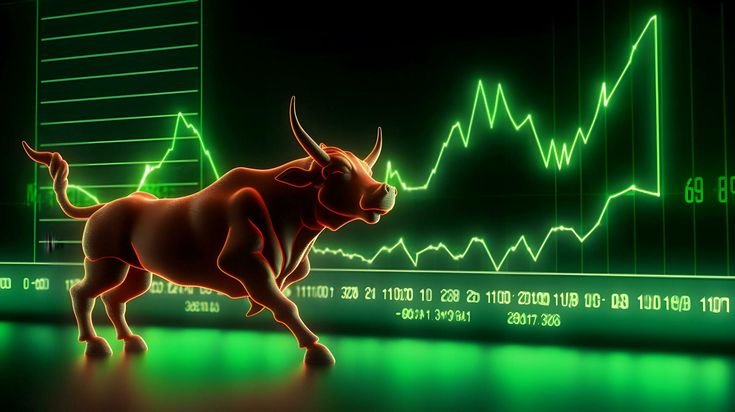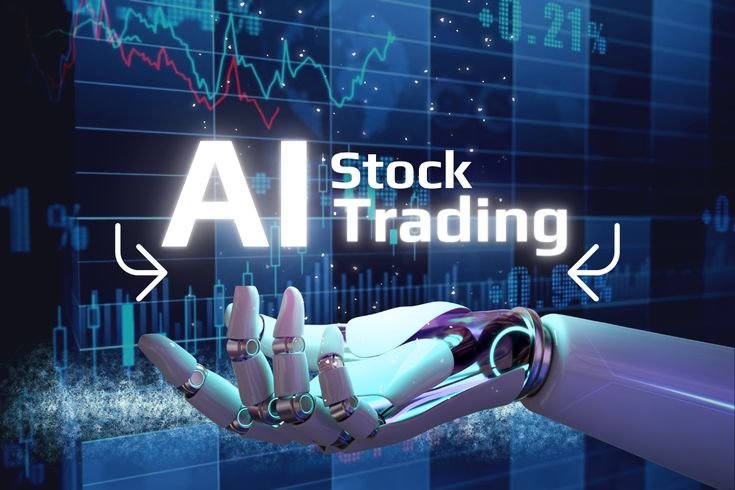Algo Trading
Algorithmic Trading: Revolutionizing Financial Markets with Precision and Efficiency
In the fast-paced world of financial markets, algorithmic trading (Algo Trading) has emerged as a transformative force, enabling traders and institutions to execute strategies with unmatched speed, accuracy, and discipline. By leveraging advanced computer programs and pre-defined rules, Algo Trading minimizes human intervention, optimizes decision-making, and unlocks opportunities that manual trading often misses. This article explores how Algo Trading works, its benefits, real-world applications, and why partnering with a specialized platform can elevate your trading journey.
What is Algorithmic Trading?
Algorithmic Trading is a method of executing trades using automated software programmed to follow specific rules. These rules, or algorithms, analyze market data—such as price, volume, and timing—to identify trading opportunities and execute orders within milliseconds. Unlike traditional trading, which relies on human judgment and manual execution, Algo Trading removes emotional biases and operational delays, ensuring consistency and precision. Platforms like Meta Trader 4 (MT4) and Meta Trader 5 (MT5) are widely used to design, test, and deploy these algorithms. Traders can automate strategies ranging from simple moving-average crossovers to complex machine-learning models, making Algo Trading accessible to both retail investors and institutional players.

How Does Algo Trading Work?
Strategy Design: Traders define parameters (e.g., entry/exit points, risk tolerance) based on technical indicators, statistical models, or fundamental data.
Algorithm Development: The strategy is coded into software using languages like MQL4/MQL5 (for MetaTrader) or Python.
Backtesting: The algorithm is tested against historical data to evaluate performance and refine logic.
Execution: Once deployed, the software monitors markets in real-time, automatically placing orders when conditions align with the strategy.
Risk Management: Built-in safeguards, like stop-loss orders, protect against unexpected market swings.
For example, an algorithm might track a stock’s 50-day moving average. If the price crosses above the average, it triggers a buy order; if it falls below, a sell order is executed—all without manual input.

The Evolution of Algo Trading
Algo Trading has grown exponentially since its inception in the 1970s, driven by advancements in computing power, data availability, and regulatory changes. Initially adopted by institutional investors for large-order execution, it’s now accessible to retail traders through user-friendly platforms. High-frequency trading (HFT), a subset of Algo Trading, dominates markets by executing thousands of orders per second, capitalizing on micro-price movements.
Key Benefits of Algo Trading
Speed and Efficiency:
Algorithms react to market changes in milliseconds, ensuring optimal entry/exit points. This is critical for strategies like arbitrage or HFT, where delays cost profits.Emotion-Free Trading:
Human traders often fall prey to fear or greed, leading to impulsive decisions. Algorithms stick to the plan, eliminating psychological pitfalls.Reduced Transaction Costs:
By minimizing slippage and optimizing order routing, Algo Trading lowers costs, especially for large-volume trades.Error Reduction:
Manual order entry risks typos or miscalculations. Algorithms execute trades flawlessly, adhering to exact parameters.24/7 Market Monitoring:
Algorithms tirelessly scan global markets, even when you’re asleep, ensuring no opportunity is missed.Backtesting and Optimization:
Test strategies across decades of data to refine profitability before risking capital.Scalability:
Manage multiple strategies or assets simultaneously, a feat impossible manually.
Real-World Applications
Institutional Investors: Use algorithms to break large orders into smaller chunks, minimizing market impact (e.g., VWAP strategies).
Retail Traders: Automate day trading or swing trading strategies based on technical indicators.
Market Makers: Provide liquidity by continuously quoting bid/ask prices, earning spreads.
Arbitrageurs: Exploit price discrepancies between assets or exchanges in real-time.
Challenges and Considerations
While powerful, Algo Trading isn’t without risks:
Over-Optimization: Curating strategies too closely to past data may fail in live markets.
Technical Failures: Connectivity issues or software bugs can disrupt execution.
Regulatory Compliance: Ensure algorithms adhere to exchange rules and market laws.
Partnering with a reliable platform mitigates these risks through robust infrastructure and compliance support.
Why Choose Our Algo Trading Platform?
We empower traders to convert their intraday or positional strategies into automated systems with precision. Here’s how we stand out:
Seamless Integration with MetaTrader:
Leverage MT4/MT5’s advanced tools to code, backtest, and deploy strategies effortlessly.Custom Strategy Development:
Our experts translate your logic into error-free code, whether you’re a novice or seasoned trader.Emotion-Free Execution:
Eliminate hesitation and manual errors. Trades are executed the moment criteria are met.

Cost-Effective Solutions:
Competitive pricing ensures you keep more profits while accessing institutional-grade tech.Dedicated Support:
From strategy design to risk management, our team guides you at every step.

Getting Started with Algo Trading
Define Your Strategy: Start with a clear idea—e.g., “Buy when RSI < 30; sell when RSI > 70.”
Choose a Platform: MT4/MT5 offers intuitive interfaces for coding and live trading.
Backtest Rigorously: Validate performance across diverse market conditions.
Start Small: Deploy with a demo account, then transition to live funds once confident.
The Future of Algo Trading
Advances in AI and quantum computing will further enhance algorithmic capabilities. Machine learning models adapt to evolving markets, while decentralized finance (DeFi) expands automated trading to cryptocurrencies and NFTs.
Conclusion
Algorithmic Trading is no longer a luxury reserved for Wall Street—it’s a necessity for anyone seeking a competitive edge. By automating decisions, reducing costs, and eliminating emotions, it democratizes access to sophisticated trading. Whether you’re a day trader, long-term investor, or institution, our platform equips you with the tools to succeed.
Ready to Transform Your Trading?
Convert your strategies into profit-generating algorithms today. Let’s code your success—without the stress.
[Contact Us] to start your Algo Trading journey!
WhatsApp us

